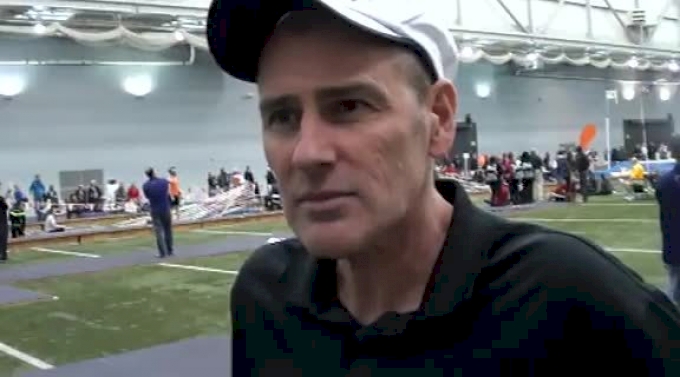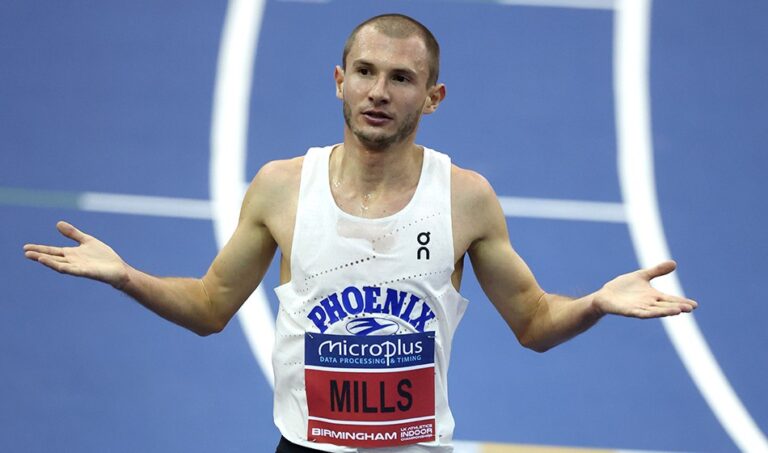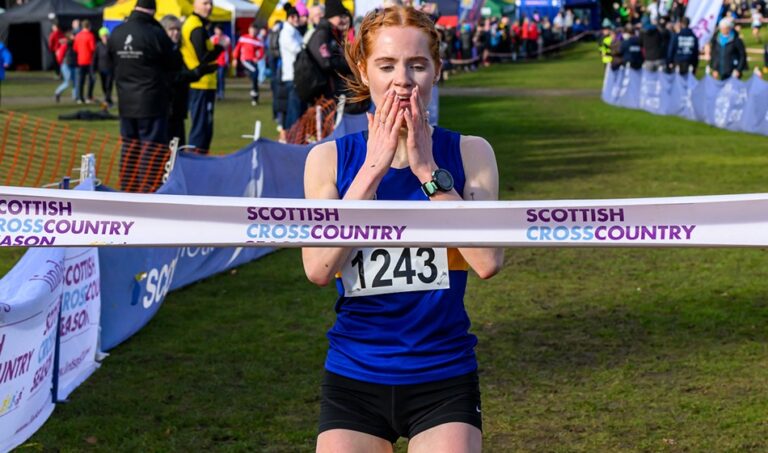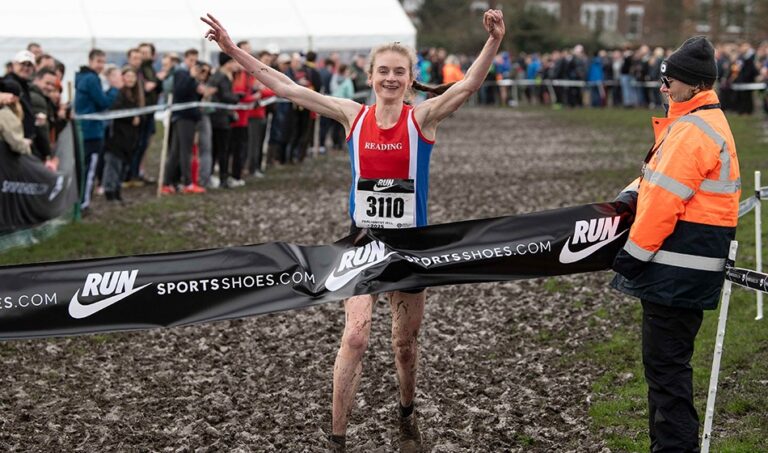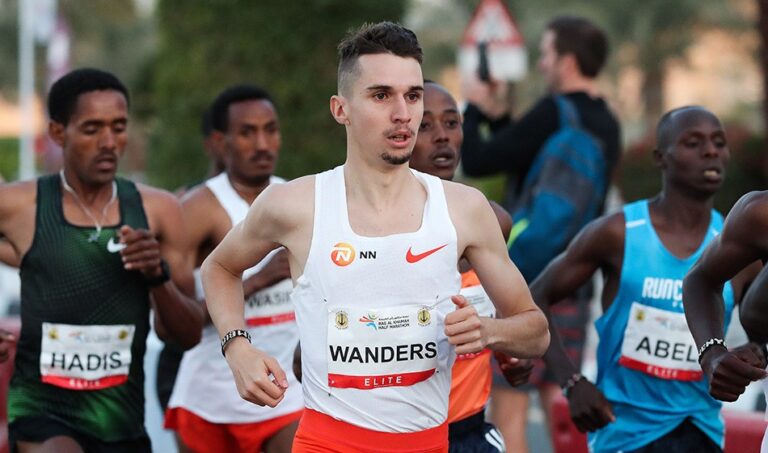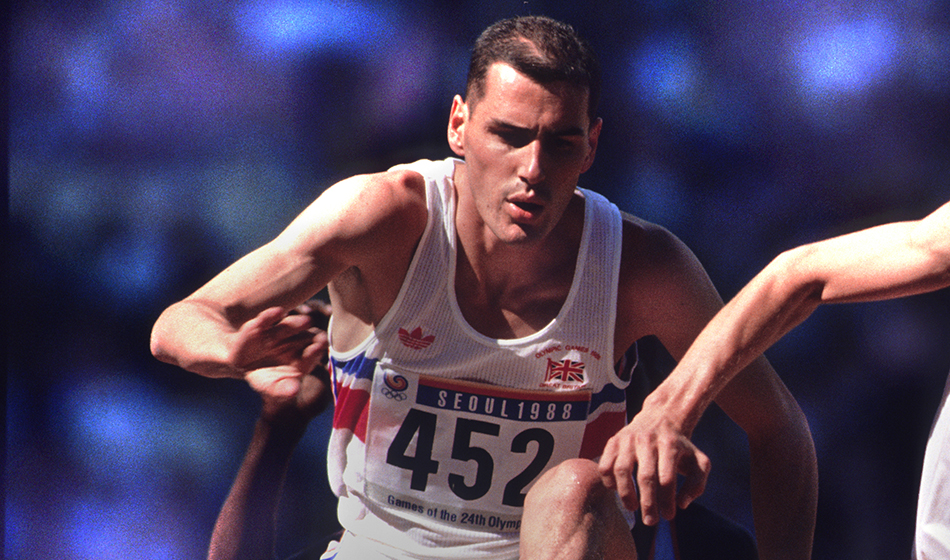
The coach and UK 3000m steeplechase record-holder talks about the pronounced change in his career that is seeing him about to leave a life in Canada to mentor and mould student-athletes in Scotland
Mark Rowland had no intention of returning to the UK. After 14 years working in America, having moved there in 2008 to head up Nike’s Oregon Track Club Elite project, then spending another two as Athletics Canada’s West Hub Endurance Coach, the Olympic steeplechase medallist was fully expecting to see his Canadian charges through to the LA Games of 2028 at the very least.
Mark Rowland
Instead, his professional life has taken a very different turn. He will shortly be arriving in Scotland to start work as performance endurance head coach of the University of Edinburgh’s Global Endurance Project. The prospect of being able to “get his hands dirty” and create the framework from which the university hopes to establish itself at the cutting edge of distance running within the next five years simply proved too strong.
And so it is that he will land this month ready to get the lay of the land, to assess the athletes already in place, and the facilities at hand and then set about putting the pieces of the jigsaw together that he hopes will culminate in the realisation of a vision.
The fact that the university has been able to land a world-renowned coach who has led a number of athletes to world and Olympic medals says much not only about the level of their ambition but also about how attractive a proposition the project is.
“They sold it to me,” says Rowland. “I got stimulated and excited by the opportunity and the challenge of: ‘What’s your purpose? What am I doing and what do I want to do?’
“I want to work with athletes on a day-to-day basis. It’s all very well managing, developing, doing and leading but I want to influence changes on a day-by-day basis. I want to get on the ground, I want to be productive.”
The 61-year-old, whose run of 8:07.96 in winning 3000m steeplechase bronze at the 1988 Seoul Olympics still stands as the British record, admits there are similarities to the task that awaits him now and the one he faced when setting up the Oregon Track Club Elite. While brand-sponsored training groups are now to be found throughout the world, Rowland played a key role in the one which started it all. Rather than trying to recruit athletes who have just come through the NCAA system – as he had to do in America – in Edinburgh the aim is to identify talent earlier.
“Talent will surface,” he says. “Sometimes we can get a little bit bogged down with all the finer details and marginal gains that people talk about, but we’ve got to get the basics right. I think, especially with the younger athletes, it gets inside their heads and it becomes too complicated. So it’s stripping it back down to the basics, looking at where the priorities are and how we can get maximum gains on minimum return. [From my experience in America] that 18 to 22 age group is where you would like to pick people up and influence change a lot of the time.”
Rowland’s plan in Edinburgh, just as it was in Oregon, is to “create a programme with a home base”. He will also be looking for people to help him drive it along and to “challenge” him.
“I don’t need you to tell me what I already know. Tell me things I don’t,” he says.
“There are going to be challenges along the way, but the principles are the same. First, don’t throw the kitchen sink at the athletes, then you’ve got to look at what their mindsets are – do they buy in or are they buying in [to the philosophy]? And there’s this element of trust. I’ve got to earn trust there, as well, and hopefully there’s a respect.
“There’s a perception of who I am – possibly good, bad or indifferent – but hopefully people will just put that on the shelf and take me for who I am when I come in. I want to work with people. I want to collaborate well, I want to hopefully have some empathy along the way and then help people. It’s all about athletes in the end, isn’t it?”
Rowland arrives in Scotland at a time when the sport’s profile, particularly when it comes to middle-distance and endurance running, has rarely been higher. European 10,000m bronze medallist Megan Keith, in the final year of a sports science degree at the University of Edinburgh, is a high-profile example of what might be possible.

Megan Keith (David Hicks)
Rowland happily admits the ambition is to be able to recruit the best Scottish talent around and offer a more than credible alternative to the now increasingly well-trodden route to the NCAA system. As a self-confessed realist, he knows that is indeed a lofty goal. However, it’s not going to stop him encouraging his athletes to reach for it. So what are the students that come under his charge likely to experience?
“Not every athlete is going to be world-class, are they? But just because you’re not a world-class athlete doesn’t mean to say that you can’t behave like one,” he says. “I’m a disciplined guy – not disciplined as in cracking the whip, but in terms of standards, timekeeping… just the basics.
“You’re just trying to create that environment that enables athletes to optimise their performance. The job spec is to create and enable athletes to challenge for medal-winning performances. Now we know that, at university, that’s a bit of a stretch. There are added stresses of balancing their timetables and all that kind of stuff.
“I like structure and discipline and at university, they’ve got to have that because you can’t burn the candle at both ends. I have found over my time in this sport, especially dealing with others, that [so much comes down to] decision making. I might have had people who have not been the best genetically, but they are able to make decisions more effectively and make the right decisions. I think that’s part of a quality, a talent gene. Mindset is important, too.”
Rowland envisages that, initially at least, he will be painting with broad brush strokes.
“We’re trying to produce an athlete first rather than a specialist but to do that you need structure,” he adds. “If you can give them a solid foundation, then at least you know that they’ll drive the programme, and the elite ones generally do because they take you somewhere else that you’ve probably not been before. Anybody that I’ve had at a world standard… they are different, they do it differently. I’m not looking for normal people.”
The man who spent eight years working as a steeplechase and middle distance coach with UK Athletics following his retirement as an athlete is not planning to make an immediate impact. There are so many people to meet, to talk to, not least the mentors of those student-athletes who are coached outside of the university.
“They’re not all going to be my athletes, but I think hopefully we can put the foundations down so that we can start to recruit better athletes in 2026/2027,” he says. “I’m looking at one or two phases down the line. If you want to be successful and you want to win then you’ve got to get the right athletes. You’ve got to invest time in recruitment and the marketing process of it.
“I want to get on the ground and see how it operates and then start to make some adjustments along the way. I’m excited about the challenge and working with good people around me.”



